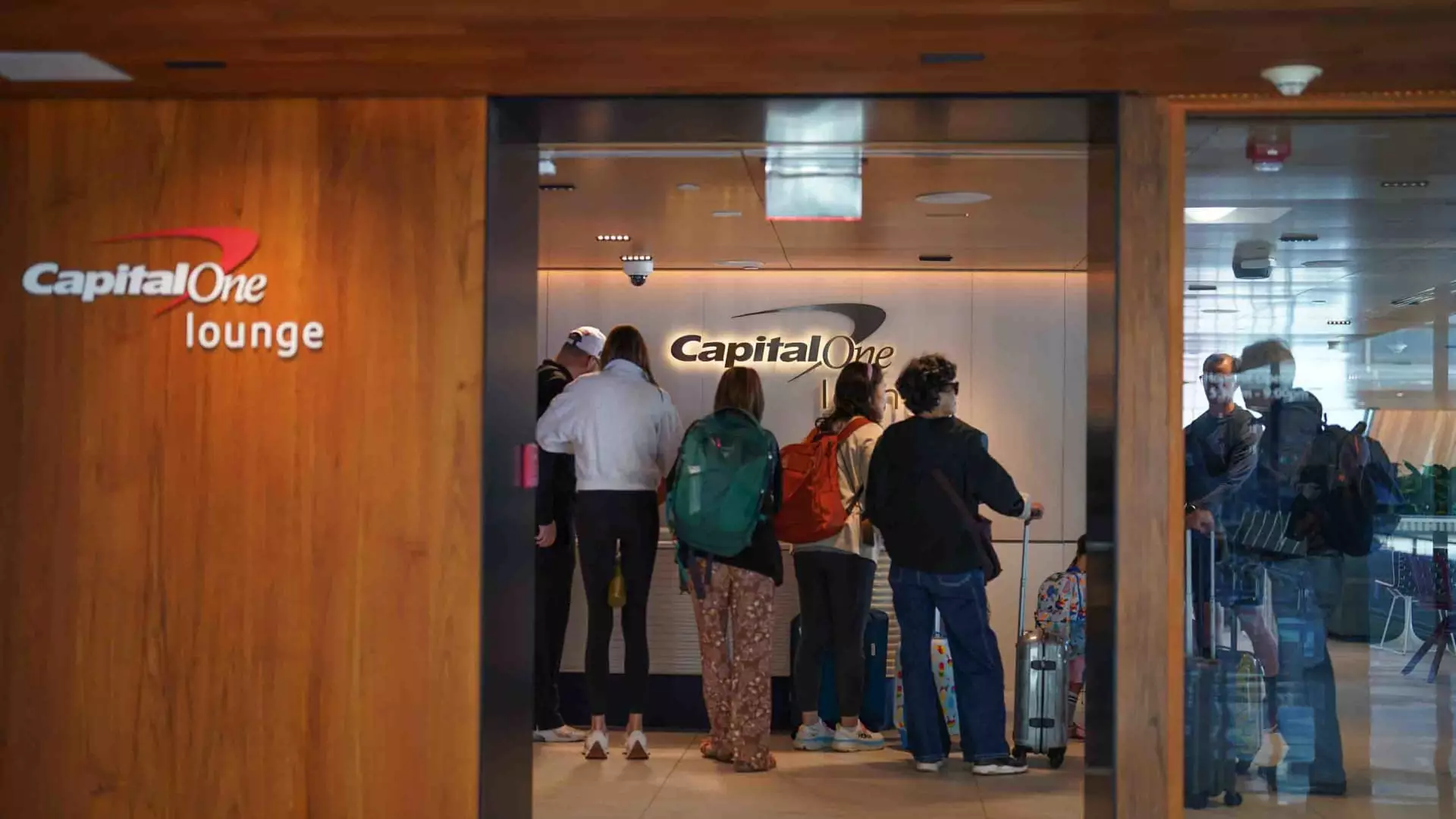In a world where travel is becoming increasingly accessible and affordable—evidenced by falling airplane ticket prices—the cost of enjoying a premium experience at airports is soaring. Capital One’s recent policy changes to their airport lounge access serves as a wake-up call. As of February 1, the Venture X and Venture X Business cardholders are facing a stark reality: the luxury of bringing guests into lounges is no longer a given. Access that was once part of the allure of premium cards now comes with a price tag, marking a serious shift in how credit card companies like Capital One are navigating the competing demands of exclusivity and popularity.
The financial world uses perks to attract consumers, and airport lounge access has become one of the selling points of credit cards, but now it’s clear that those privileges come with strings attached. What used to be an all-inclusive benefit is swiftly turning into a restricted privilege available only to those willing to pay extra. The revelation that primary cardholders will need to cough up a whopping $75,000 annually for the privilege of bringing guests into lounges starkly contrasts the affordability of travel itself. It’s a blatant attack on the consumer, one that signifies a troubling trend of corporate greed in an industry that should celebrate accessibility.
The Illusion of Accessibility
While Capital One emphasizes that their aim is to create a “great airport lounge experience,” one can’t help but question whether this change serves the true needs of consumers or merely reinforces corporate profit margins. Limiting guest access while pointing to overcrowding as the impetus feels like a move designed to clamp down on the masses while catering to the elite few. Call it what you will—an attempt to manage expectations or an exploitative cash grab—the result remains the same. The average traveler is left feeling marginalized.
In a sense, this reflects broader societal issues where the wealth gap is becoming increasingly intolerable. As credit card holders become unrelentingly squeezed for every dollar, those who genuinely wish to enhance their travel experience are being left behind. Why should a middle-income family feel punished for simply wanting to enjoy an upgraded travel experience? The premium experience is increasingly becoming a gated community rather than an inclusive haven for all.
Lounges: A Victim of Success
The saturation of lounges and the rapid expansion of airport facilities indicate more than just a burgeoning market for travel. It displays an intense paradox: the very things designed to enhance the travel experience are becoming inundated and, ironically, contributing to a less enjoyable atmosphere. As highlighted by industry experts, lounges have indeed become “victims of their own success.” Crowded spaces detract from the calm and comfort that luxurious lounges promise.
Interestingly, competitors haven’t remained idle. American Express and Chase have already set the bar with their own restrictive policies aimed at maintaining exclusivity. Those hoping to access comfortable spaces during layovers are faced more than ever with barriers rather than open doors. By mimicking these practices, Capital One seems to be broadening the definition of “premium access,” but in reality, they are merely aligning themselves with an unsustainable trend of consumer disenfranchisement.
The Corporate Tug-of-War
With massive corporations like Delta and American Airlines facing similar challenges, it appears we might be witnessing the dawn of a new age of travel restrictions. Price hikes and new access policies not only diminish choice but are symptomatic of a broader trend where the essence of customer experience is overshadowed by profit-making tactics.
Carefully crafted marketing messages about “premium quality” and “exclusive experiences” mask a more disturbing reality: the average traveler is more excluded from these amenities than ever. This tug-of-war between maintaining a premium experience and managing heavy demand could very well yield a marketplace that sees travel comfort reserved only for the super-rich.
In the end, as consumer loyalty wears thin, could we find ourselves yearning for the days when travel felt more about exploration and less about economic barriers? It seems the very experiences meant to elevate our travels are slowly eroding under the weight of corporate strategy and profit, leaving many to ponder whether the cost of luxury is worth its fading availability.

